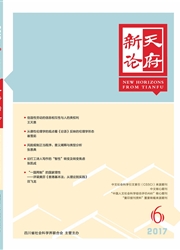

 中文摘要:
中文摘要:
理性要素代表主体探索"确定性"的诉求,既包含体现客观性的科学知识,也指对待知识的态度和求知的方法等。"科学格致化"和"科学艺术化"是淆乱科学本体的两种现象,其实质是以"善"和"美"的职能、标准来要求"真"和改写"真",它源于中国文化特有的理性观,即以"价值理性"排斥"工具理性",形成扬"情理"抑"物理"的"实用理性",使执着于"知识"和"真理"本身的知识分子常常遭遇"实用"质疑,王小波在其杂文和小说中批驳了与之有关的"之用"逆退、"实用"诘难以及用价值判断取代真伪判断的习惯做法,这种以"善"辖制"真"、取消"真"的文化习性正是"科学"引入中国时被变异为"科学观"的主因,最终归结为思维方式注重"合"、忽略"分"甚至反对"分"的特性,这一特性塑造了与之协调的中国人的"自我意识",在探索客观世界时缺乏以"程式"确定下来的"抽象的升华",这恰是理性之殇的文化渊源。
 英文摘要:
英文摘要:
Rational elements represent the subject's appeal for exploring "certainties",including both scientific knowledge characterized by objectivity as well as attitudes to knowledge and methods of seeking knowledge.Phenomena like "artistization of science" tend to confuse the noumenon of science,which is a rational view typical of the Chinese culture.Thus,the intellectuals possessed by "knowledge" and "truth" often question the "practicalness".In his novels and essays,Wang Xiaobo criticized some practices like replacing truth judgment with value judgment.He concluded that the thinking mode pays attention to "union" and ignores or even opposes "division",which has resulted in the Chinese people's "self-centeredness".
 同期刊论文项目
同期刊论文项目
 同项目期刊论文
同项目期刊论文
 期刊信息
期刊信息
